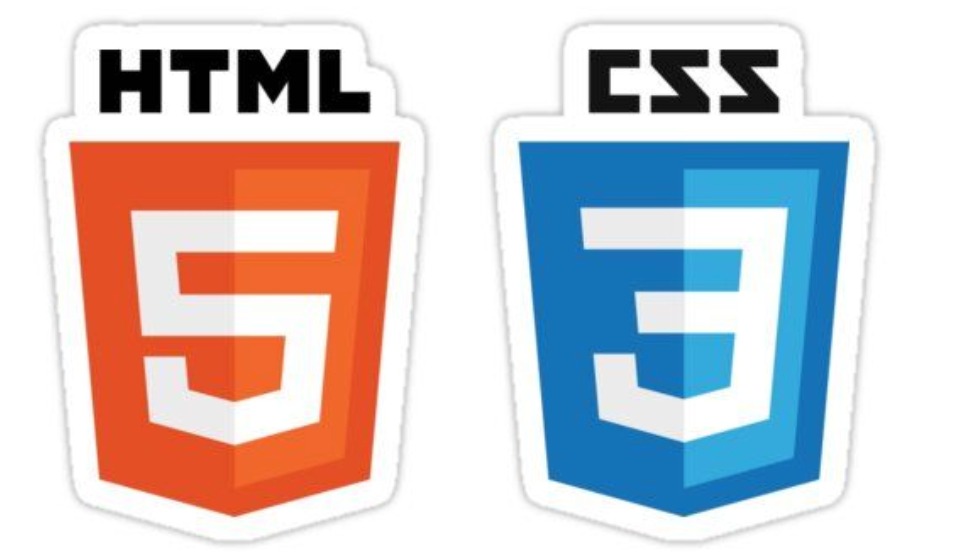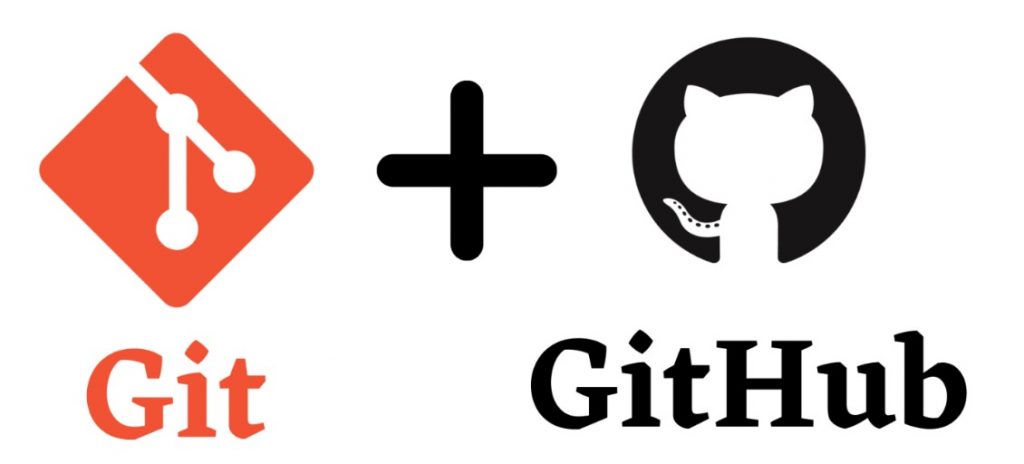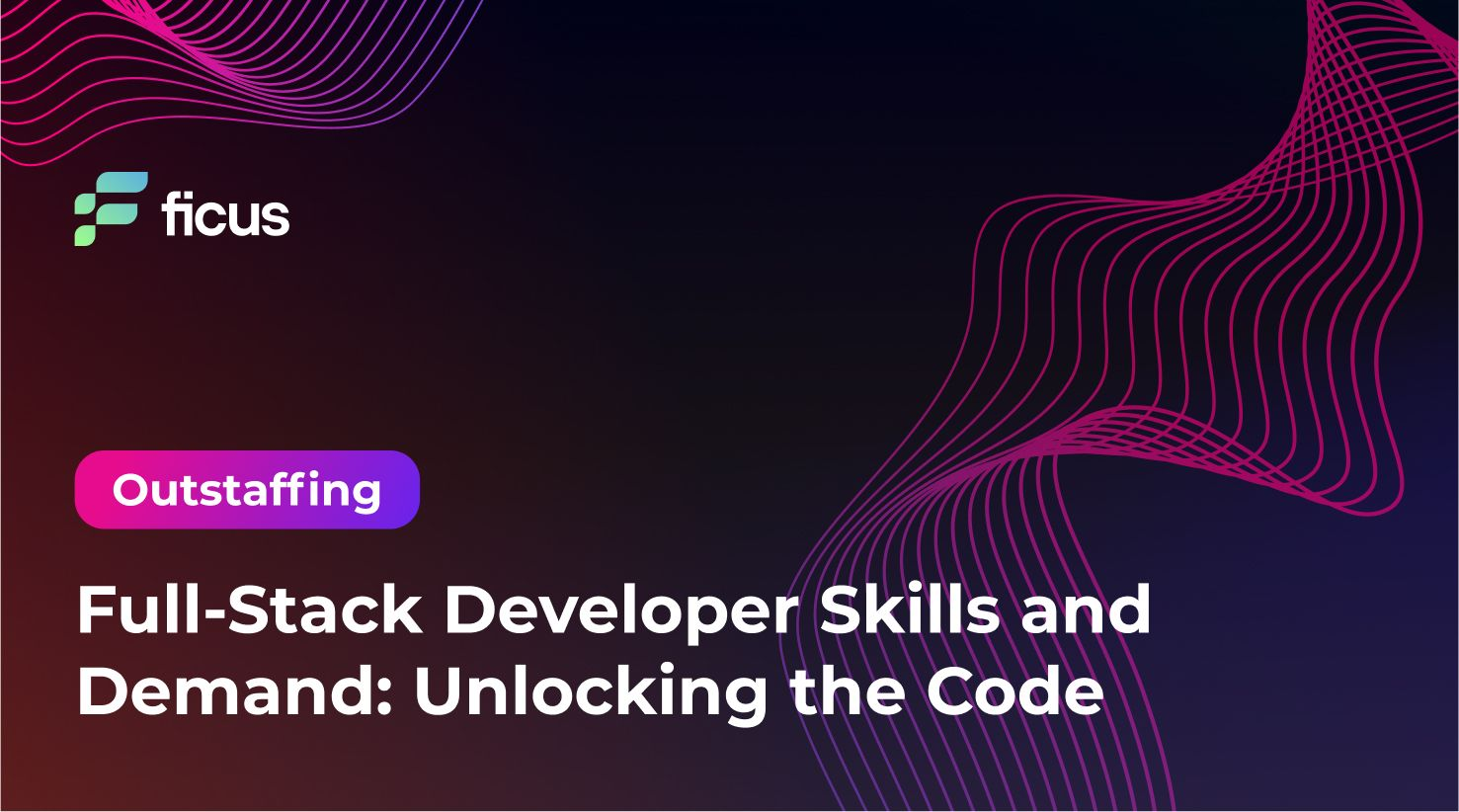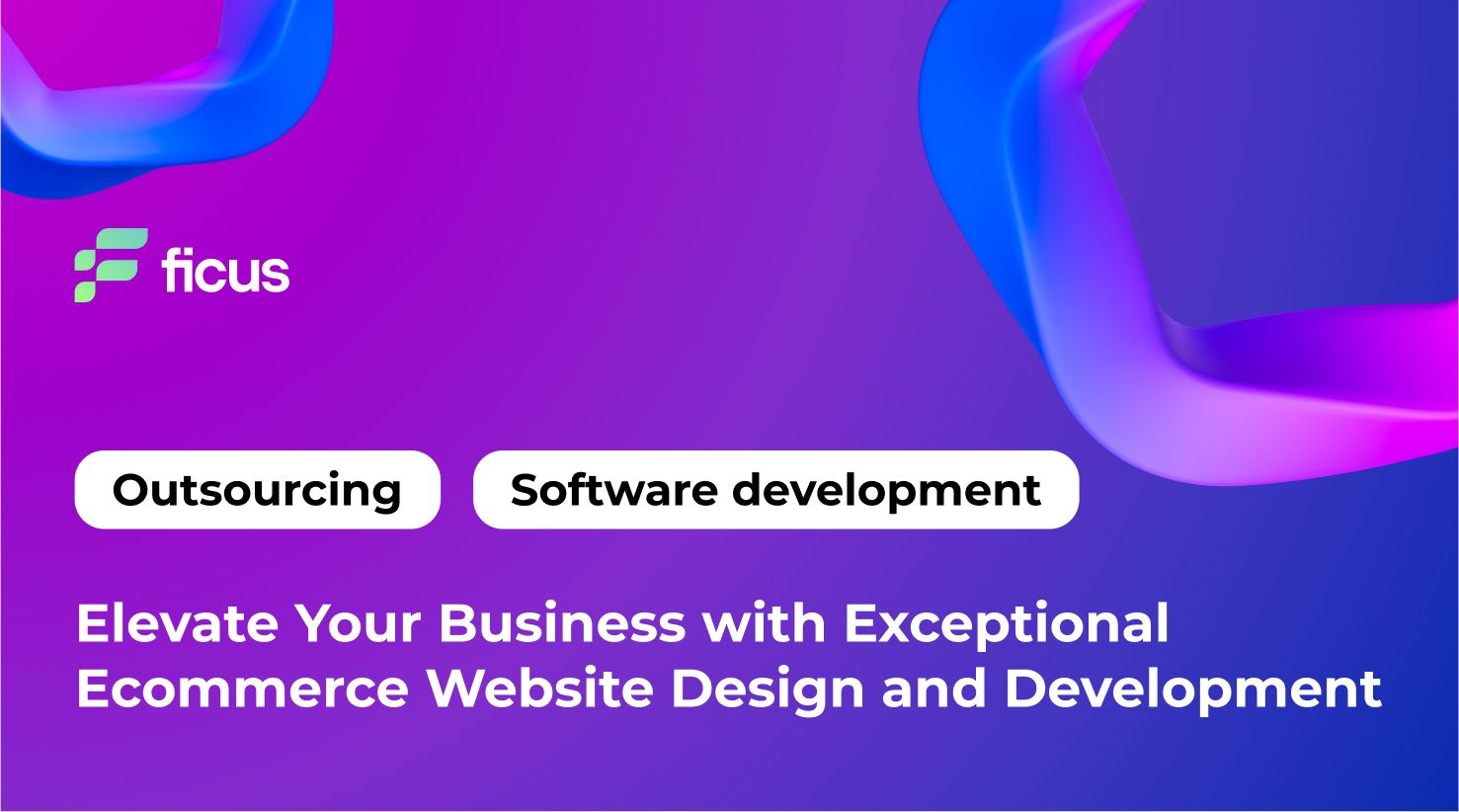In the fast-paced digital age, businesses are increasingly relying on sophisticated web applications to stay ahead of the competition. Full-stack developers, who possess the ability to handle both the frontend and backend of web development, are pivotal in making these applications come to life. Their expertise spans across various layers of technology, encompassing essential Full-Stack Developer Skills that enable them to create comprehensive solutions that enhance user experience and drive business growth.
For big businesses, the demand for skilled full-stack developers has never been higher. As companies strive to deliver seamless digital experiences, they need professionals who can understand and manage the full spectrum of development tasks. From mastering frontend technologies like HTML, CSS, and JavaScript to handling backend frameworks and server management, full-stack developers are key players in the industry. Their ability to integrate various technologies into a cohesive application, leveraging their Full-Stack Developer Skills, makes them invaluable for companies aiming to stay competitive in the digital landscape.
In this article, we will delve into the essential Full-Stack Developer Skills that developers must master in 2024, the growing demand for these professionals in the job market, and how their expertise can significantly benefit businesses. Whether you are an employer looking to hire the right talent or a business owner seeking to understand the impact of full-stack development on your operations, this comprehensive guide will provide you with valuable insights.
- Full-Stack Developer skills are essential amid surging industry demand.
- Ficus Technologies empowers developers with autonomy in the dynamic industry.
- The article highlights Full-Stack Developer roles, skills, and market demand.
What exactly is a full stack developer?
A full-stack developer is a versatile professional skilled in both frontend and backend development. This means they are proficient in creating the user interface (UI) and user experience (UX) aspects of a web application, as well as managing the server, database, and other backend components that power the application. They bridge the gap between different layers of development, ensuring that the code is efficient, the data flows seamlessly, and the overall web experience is smooth.
In modern web development, the role of a full-stack developer is crucial. They have a deep understanding of multiple programming languages, frameworks, and technologies, allowing them to build complete, robust applications from scratch. Their expertise in both frontend and backend development enables them to see the bigger picture and create solutions that are not only technically sound but also aligned with business objectives. For businesses, having full-stack developers means faster development cycles, reduced costs, and the ability to quickly adapt to market changes, making them essential in today’s competitive business environment.
Why HTTP and REST Matters for Full-Stack Developers?
HTTP (Hypertext Transfer Protocol) and REST (Representational State Transfer) are foundational elements of modern web development. For full-stack developers, mastering these protocols is a crucial part of their Full-Stack Developer Skills and is essential for building robust, scalable web applications. HTTP is the protocol that underpins the web, allowing communication between clients (such as browsers) and servers. REST, on the other hand, is an architectural style that leverages HTTP for building web services that are scalable, maintainable, and easy to interact with. By mastering HTTP and REST, full-stack developers can ensure that the applications they create are both efficient and effective in meeting business needs.
For full-stack developers, proficiency in HTTP and REST is not just a technical requirement—it’s a critical skill within their Full-Stack Developer Skills that directly impacts business efficiency. Understanding how HTTP requests and responses work enables developers to optimize the way data is transferred over the web, ensuring faster load times and better performance. RESTful services, with their stateless nature and clear separation of client and server, allow businesses to build flexible and scalable applications that can easily adapt to changing demands. This leads to increased operational efficiency, reduced downtime, and a better user experience, all of which are crucial for maintaining a competitive edge.
One of the best programming skills you can have is knowing when to walk away for a while.
Oscar Godson
Key Concepts to Understand in HTTP
To excel as a full-stack developer, it’s important to grasp the core concepts of HTTP. These include understanding HTTP methods such as GET, POST, PUT, and DELETE, which are used to perform various operations on web resources. Additionally, knowledge of status codes (e.g., 200 OK, 404 Not Found, 500 Internal Server Error) is essential for handling responses and troubleshooting issues. Headers and cookies are also key concepts, as they manage important data such as authentication credentials and session information. Mastery of these concepts allows developers to build secure, efficient, and user-friendly web applications.
How These Concepts Influence the Performance and Scalability of Business Applications
The proper application of HTTP concepts can significantly influence the performance and scalability of business applications. For instance, using the appropriate HTTP methods ensures that resources are manipulated correctly, while understanding status codes helps in effectively managing errors and optimizing the user experience. Efficient use of headers and cookies can improve security and reduce the amount of data transmitted, leading to faster response times. Moreover, RESTful services, which rely heavily on these HTTP concepts, allow for the creation of scalable architectures that can handle large volumes of traffic, making them ideal for growing businesses. By mastering these concepts, full-stack developers can contribute to building applications that not only meet current demands but also scale seamlessly as the business grows.
Top Full-Stack Developer Skills To Know
In the evolving landscape of web development, full-stack developers are required to master a broad range of technical skills. These Full-Stack Developer Skills are not only essential for building robust, user-friendly applications but also critical for ensuring that businesses maintain a competitive edge online. Below, we explore the key technical competencies that every full-stack developer should have in 2024.
HTML/CSS

HTML (HyperText Markup Language) and CSS (Cascading Style Sheets) are the building blocks of the web, crucial for creating the structure and design of user interfaces. HTML provides the skeleton of a web page, defining the layout and content, while CSS enhances the visual appeal by adding styles, colors, fonts, and more. For full-stack developers, a solid grasp of HTML and CSS is fundamental, as these languages ensure that the user interface is both functional and visually engaging.
Key Features:
HTML and CSS play a pivotal role in shaping a business’s online presence. Key features like semantic HTML elements help improve SEO, making websites more accessible and easier to navigate. CSS features such as media queries enable responsive design, ensuring that websites look great on any device, whether it’s a smartphone or a desktop. By mastering these technologies, full-stack developers can leverage their full-stack developer skills to create websites that not only attract visitors but also convert them into customers, thereby boosting the business’s online success.
JavaScript

JavaScript is a powerful, versatile programming language that allows full-stack developers to create dynamic and interactive web applications. As the backbone of modern web development, JavaScript can be used on both the client-side (frontend) and server-side (backend), making it an indispensable tool for developers aiming to build comprehensive web solutions.
Key Features:JavaScript’s key features, such as DOM manipulation, event handling, and asynchronous programming, enable developers to create responsive, real-time applications that significantly enhance user experience. With JavaScript, developers can build features like interactive forms, dynamic content updates, and real-time data visualization, all of which contribute to a more engaging and efficient user interface. Mastery of JavaScript is a crucial part of full stack developer skills, supporting business growth by improving customer satisfaction and encouraging repeat visits.
Frontend frameworks

Frontend frameworks like React, Vue, and Angular have become essential tools for full-stack developers. These frameworks simplify the development process by providing pre-built components, libraries, and tools that help in creating complex, high-performance web applications quickly and efficiently.
Key Features:
- React: Known for its component-based architecture, React allows developers to build reusable UI components, making the development process more efficient. Its virtual DOM feature ensures high performance, which is crucial for creating fast and responsive business applications.
- Vue: Vue is praised for its simplicity and flexibility. It’s lightweight yet powerful, making it ideal for both small projects and large-scale applications. Vue’s two-way data binding feature helps in keeping the data in sync between the model and the view, which is vital for maintaining real-time updates in business applications.
- Angular: As a comprehensive framework, Angular offers a complete solution for building single-page applications (SPAs). It includes built-in tools for routing, form handling, and state management. Angular’s strong typing with TypeScript provides better error detection, which is essential for maintaining the stability of business-critical applications.
Backend technologies
Backend technologies are the backbone of any web application, handling the server-side logic, database interactions, and API integrations. Technologies like Node.js, Python, and Ruby are among the most popular choices for backend development. Each of these languages offers unique features that cater to different business needs, from high performance and scalability to simplicity and rapid development.
Key Features:
- Node.js is a JavaScript runtime that allows for server-side scripting. Its non-blocking, event-driven architecture makes it ideal for building scalable, real-time applications, such as chat applications or online gaming platforms. Node.js’s extensive package ecosystem, provided by npm, allows developers to easily integrate third-party tools and libraries, speeding up development and reducing costs.
- Python is renowned for its readability and simplicity, making it a preferred choice for developers who need to focus on the logic rather than the syntax. Python’s extensive libraries and frameworks, like Django and Flask, provide powerful tools for building secure and scalable applications, which are essential for businesses handling sensitive data.
- Ruby is known for its elegant syntax and the Rails framework, which emphasizes convention over configuration, allowing developers to quickly build and deploy applications. Ruby on Rails provides a secure environment with built-in tools for data protection and user authentication, which are critical for maintaining the integrity of business platforms.
Databases and web storage
Databases are a critical component of web applications, responsible for storing and managing the data that powers everything from user accounts to transaction records. In full-stack development, understanding how to efficiently interact with databases is essential for building applications that are both robust and scalable. The choice between relational and non-relational databases depends on the specific needs of the business and the nature of the data being managed.
Relational Databases
Relational databases, such as MySQL, PostgreSQL, and SQL Server, are based on a structured schema and use SQL (Structured Query Language) to manage and query data. These databases are ideal for applications that require complex queries and transactions, such as financial applications or content management systems. Relational databases provide strong consistency and reliability, making them the go-to choice for businesses that need to maintain the integrity of their data across multiple tables and relationships.
Non-Relational Databases
Non-relational databases, also known as NoSQL databases, such as MongoDB, Cassandra, and Firebase, offer a flexible schema design, allowing for the storage of unstructured or semi-structured data. These databases are particularly useful for applications that need to handle large volumes of diverse data, such as social media platforms or real-time analytics systems. NoSQL databases excel in scenarios where scalability and speed are prioritized, making them an excellent choice for businesses that need to quickly adapt to changing data requirements and handle massive datasets efficiently.
Git/GitHub

Version control is a critical tool for any development team, enabling multiple developers to work on the same codebase without overwriting each other’s changes. Git, the most widely used version control system, along with GitHub, a platform for hosting and managing Git repositories, is indispensable in full-stack development. These tools facilitate collaboration, code review, and continuous integration, ensuring that projects are delivered on time and with high quality.
Key Features:
Git’s branching and merging capabilities allow developers to work on new features or bug fixes in isolation before integrating them into the main codebase, reducing the risk of introducing errors. GitHub enhances this process by providing a platform for pull requests, where code changes can be reviewed and discussed before being merged. Additionally, GitHub’s project management tools, such as issue tracking and project boards, help teams stay organized and focused, ultimately streamlining the development process and improving productivity.
Hosting and Infrastructure
The choice of hosting and infrastructure can significantly impact the performance, security, and scalability of business applications. As full-stack developers, understanding the various hosting options and their implications is crucial for ensuring that applications run smoothly and efficiently. Whether deploying on cloud platforms or traditional web hosting services, the right infrastructure decisions can make or break the success of an application.
Cloud Hosting Providers
Cloud hosting providers, such as AWS (Amazon Web Services), Google Cloud, and Microsoft Azure, offer scalable and flexible infrastructure that can grow with a business. These platforms provide a wide range of services, including computing power, storage, and databases, all of which can be tailored to meet the specific needs of an application. The pay-as-you-go model of cloud hosting allows businesses to scale their resources up or down based on demand, ensuring that they only pay for what they use. This flexibility is particularly beneficial for startups and growing businesses that need to quickly respond to changes in traffic and user behavior.
Web Hosting Services
Traditional web hosting services, such as shared hosting, VPS (Virtual Private Server), and dedicated hosting, offer a range of options depending on the needs and budget of the business. Shared hosting is the most cost-effective but comes with limitations in performance and control. VPS hosting provides more resources and greater control, making it suitable for medium-sized businesses with moderate traffic. Dedicated hosting offers the highest level of performance and customization, making it ideal for large businesses with high traffic and specific security requirements. Choosing the right hosting service is crucial for ensuring that a website performs well, particularly during peak traffic times, and provides a reliable user experience.
Full-Stack Developer: Non-Technical Skills
While technical skills are paramount in full-stack development, non-technical or soft skills are equally important for ensuring success in this field. These full-stack developer skills enable developers to work effectively in teams, manage projects efficiently, and continuously adapt to new challenges. For businesses, having full-stack developers with strong non-technical skills means smoother project execution, better communication, and more innovative solutions.
- Attention to Detail: Attention to detail is crucial in coding, as even a small mistake can lead to bugs, security vulnerabilities, or performance issues. Developers who meticulously review their code and test it thoroughly contribute to the creation of reliable and robust applications. For businesses, this level of precision ensures that their applications function as intended, reducing the risk of costly downtime or data breaches.
- Team Player: Collaboration is at the heart of successful development projects. Full-stack developers often work in teams, where effective communication and a cooperative attitude are essential. Being a team player means being able to work well with others, share knowledge, and contribute to a positive work environment. For businesses, having developers who excel in collaboration leads to more efficient project workflows, faster problem-solving, and ultimately, better product outcomes.
- Patience and Organization: Full-stack development often involves managing complex projects with multiple moving parts. Patience and strong organizational skills are necessary to keep track of tasks, meet deadlines, and navigate challenges without getting overwhelmed. Developers who are well-organized and patient can handle the pressures of tight schedules and intricate coding tasks, ensuring that projects are completed successfully and on time. For businesses, this means more predictable project timelines and a higher likelihood of meeting strategic goals.
- Growth Mindset: The tech industry is constantly evolving, with new tools, frameworks, and best practices emerging regularly. A growth mindset—an attitude that embraces continuous learning and adaptation—is essential for full-stack developers who want to stay relevant and effective in their roles. Developers who are committed to learning new skills and staying updated with industry trends are better equipped to tackle new business challenges and innovate solutions. For businesses, this translates into a competitive edge, as their development teams are always prepared to leverage the latest technologies to improve products and services.
Additional Skills
In addition to the core technical and non-technical skills, full-stack developers can benefit from mastering other skills that further enhance their effectiveness. These additional skills can set developers apart in a competitive job market and enable them to contribute more significantly to their teams and projects.
- Design: While not all full-stack developers are required to be design experts, having a basic understanding of design principles can be incredibly beneficial. Good design is crucial for creating applications that are not only functional but also visually appealing and easy to use. Developers who can contribute to the design process can help ensure that the final product meets both aesthetic and usability standards. For businesses, this means creating applications that not only perform well but also attract and retain users through an engaging and intuitive interface.
- Project Management: Project management skills are invaluable for developers who want to take on leadership roles or manage their own projects. Understanding project management methodologies, such as Agile or Scrum, can help developers organize their work, set realistic deadlines, and manage resources effectively. For businesses, having developers with project management skills means more efficient project execution, better risk management, and a higher likelihood of delivering projects on time and within budget.
- Continuous Learning: Continuous learning is a key component of a successful career in full-stack development. The tech industry is constantly evolving, and developers who commit to ongoing education are better equipped to stay ahead of the curve. Whether through online courses, certifications, or self-directed study, continuous learning ensures that developers remain proficient in the latest technologies and best practices. For businesses, this means having a development team that is always ready to implement the most innovative and effective solutions, keeping them competitive in a fast-paced market.
Looking for full-stack developers for your project?
Contact UsBenefits of Being a Full-Stack Developer
Being a full-stack developer offers numerous advantages for professionals looking to build a versatile and rewarding career. One of the primary benefits is job versatility. Full-stack developers can work on both the front-end and back-end of web applications, making them highly adaptable to different project requirements. This versatility not only broadens their skill set but also opens up a wider range of job opportunities, as they can fit into various roles within a development team.
Benefits of Working on Outstaffing for Full-Stack Developers
Outstaffing presents several benefits for full-stack developers, providing them with unique opportunities that traditional employment might not offer. One of the main advantages is the flexibility it provides. Full-stack developers working through outstaffing arrangements can choose projects that align with their interests and expertise, giving them the freedom to shape their careers according to their goals. This flexibility also allows developers to work from anywhere, which can lead to a better work-life balance.
Outstaffing is also cost-efficient for businesses. Companies can access top talent without the overhead costs associated with hiring full-time employees, such as benefits and office space. For developers, this often translates into competitive pay rates, as businesses are willing to pay more for the expertise they need on a project-by-project basis. Additionally, outstaffing allows developers to gain exposure to a variety of industries and technologies, enhancing their skills and making them more marketable. Now you know why you should hire Full Stack Developers in more detail.
Another significant benefit is access to global talent. Outstaffing enables businesses to hire the best developers regardless of their geographical location, which is particularly advantageous for companies looking to innovate and stay competitive. For full-stack developers, this means the opportunity to work with diverse teams and on cutting-edge projects from around the world, further enriching their professional experience.
How to Become a Full-Stack Developer?
Becoming a full-stack developer involves a commitment to learning and practicing a wide range of skills. Here’s a step-by-step guide to help you on your journey:
- Start with the Basics:
- Begin by learning the fundamentals of web development, including HTML, CSS, and JavaScript. These are the building blocks for front-end development and are essential for creating user interfaces.
- Learn a Back-End Language:
- Choose a back-end programming language such as Python, Ruby, PHP, or JavaScript (with Node.js). Understanding how to work with databases and server-side logic is crucial for full-stack development.
- Master Front-End Frameworks:
- Familiarize yourself with popular front-end frameworks and libraries like React, Angular, or Vue.js. These tools will help you build dynamic and responsive user interfaces more efficiently.
- Dive into Back-End Frameworks:
- Explore back-end frameworks such as Django, Ruby on Rails, or Express.js. These frameworks streamline the development process and help you build scalable and maintainable applications.
- Understand Databases:
- Learn about different types of databases, including SQL (e.g., MySQL, PostgreSQL) and NoSQL (e.g., MongoDB). Knowing how to design, query, and manage databases is a key skill for full-stack developers.
- Practice Version Control:
- Get comfortable with version control systems like Git. Version control is essential for collaborating with other developers and managing code changes efficiently.
- Build Projects:
- Apply your skills by building real-world projects. Start with small applications and gradually take on more complex projects. This hands-on experience is invaluable for reinforcing what you’ve learned.
- Seek Certifications:
- Consider earning certifications in web development or specific technologies (e.g., AWS Certified Developer, Microsoft Certified: Azure Developer Associate). Certifications can validate your skills and enhance your resume.
- Stay Updated:
- The tech industry is constantly evolving, so it’s important to keep learning. Follow industry blogs, take online courses, and participate in developer communities to stay current with the latest trends and technologies.
- Apply for Jobs or Freelance:
- Once you’ve built a solid portfolio, start applying for full-stack developer positions or consider freelancing. Gaining professional experience will help you continue to grow and refine your skills.
Future Prospects for Full-Stack Developers in the AI-Driven Era
Analysis of How AI Is Shaping the Future of Full-Stack Development
The rise of artificial intelligence (AI) is transforming the landscape of full-stack development, offering new opportunities and challenges for developers. AI technologies are increasingly being integrated into various aspects of web development, from automating routine coding tasks to enhancing user experiences with intelligent features.
AI-driven tools, such as machine learning algorithms and natural language processing, are enabling developers to create more sophisticated applications. For example, AI can automate code generation, bug detection, and performance optimization, significantly speeding up the development process and improving the quality of the final product. Additionally, AI is being used to build predictive analytics and personalized user experiences, providing businesses with valuable insights and a competitive edge.
As AI continues to evolve, full-stack developers will need to adapt by acquiring new skills related to AI technologies and integrating them into their development practices. This includes understanding how to work with AI frameworks, develop machine learning models, and leverage AI for data analysis and decision-making. The demand for full-stack developers with AI expertise is expected to grow, as businesses seek professionals who can harness the power of AI to drive innovation and enhance their products.
Insights into New Opportunities for Businesses Leveraging AI-Driven Technologies
Businesses that embrace AI-driven technologies can unlock numerous opportunities for growth and innovation. AI can streamline operations, improve decision-making, and create more engaging user experiences. For example, businesses can use AI to analyze customer data and generate insights that inform marketing strategies, product development, and customer service.
Moreover, AI-driven automation can enhance efficiency by handling repetitive tasks, allowing developers to focus on more complex and creative aspects of their projects. This can lead to faster development cycles and more innovative solutions. Companies that invest in AI technologies are likely to gain a competitive advantage, as they can offer smarter products and services that meet the evolving needs of their customers.
Full-stack developers who are proficient in AI technologies will be well-positioned to contribute to these advancements, making them valuable assets to businesses looking to leverage AI for growth and success.
Is full stack developer high paying?
Current Salary Trends for Full-Stack Developers
The average salary for full-stack developers can vary significantly based on factors such as location, experience, and skill level. As of 2024, the average salary for a full-stack developer in the United States ranges from $75,000 to $120,000 per year, with higher salaries in major tech hubs like San Francisco, New York, and Seattle. In other regions, such as Eastern Europe or South Asia, salaries may be lower but still competitive.
The demand for full-stack developers continues to grow, driven by the increasing need for versatile professionals who can handle both front-end and back-end development tasks. This rising demand is contributing to higher salary expectations and better compensation packages for skilled developers.
Salary Expectations Vary Based on Skills, Location, and Experience
Salary expectations for full-stack developers are influenced by several key factors:
- Skills: Developers with expertise in cutting-edge technologies, such as AI, cloud computing, or advanced frameworks, often command higher salaries. Proficiency in popular languages and tools also plays a significant role in salary determination.
- Location: Geographic location has a substantial impact on salary. Tech hubs with a high cost of living, such as Silicon Valley or New York City, typically offer higher salaries to compensate for the increased expenses. Conversely, salaries may be lower in regions with a lower cost of living.
- Experience: Experience level is a major factor in salary expectations. Entry-level developers can expect lower starting salaries, while experienced developers with a proven track record and leadership skills can earn significantly more. Developers with a strong portfolio and years of experience in full-stack development are often able to negotiate higher compensation.
How Ficus Technologies Can Help You?
Ficus Technologies is a premier provider of top-tier full-stack developers, specializing in delivering comprehensive development solutions tailored to meet the unique needs of businesses. With a team of highly skilled professionals, Ficus Technologies offers expertise across the entire technology stack, ensuring that businesses receive exceptional support for both front-end and back-end development.
Ficus Technologies Meets Business Needs by Offering Top-Tier Talent
At Ficus Technologies, we understand the critical role that skilled full-stack developers play in driving business success. Our developers are proficient in the latest technologies and methodologies, ensuring that your projects are completed efficiently and to the highest standards. We offer flexible engagement models, including full-time, part-time, and contract-based solutions, to accommodate your specific requirements.
Our focus on quality and innovation means that we are committed to delivering solutions that align with your business goals and enhance your competitive edge. Whether you need to build a new application, optimize an existing platform, or leverage AI-driven technologies, Ficus Technologies provides the expertise and support you need to achieve your objectives.
Ficus Technologies for Their Development Needs
Don’t miss the opportunity to work with a leading provider of full-stack development services. Contact Ficus Technologies today to discuss how our team of expert developers can help you achieve your business goals. Whether you’re looking to enhance your current projects or embark on new development initiatives, we are here to provide the solutions you need for success.
Final Thoughts
In the ever-evolving field of web development, full-stack developers play a crucial role in building and maintaining robust, scalable applications. As businesses continue to embrace new technologies and adapt to the demands of the digital age, the skills and expertise of full-stack developers are more valuable than ever. From mastering essential technical skills to understanding the impact of AI on development, full-stack developers are at the forefront of innovation.
By staying current with industry trends, honing both technical and non-technical skills, and leveraging opportunities such as outstaffing, full-stack developers can position themselves for a successful and rewarding career. For businesses, engaging with top-tier development talent like those offered by Ficus Technologies ensures access to the expertise needed to drive growth and achieve strategic goals.
Embrace the future of full-stack development with confidence, and explore the possibilities that await with the right skills and partners.
Becoming proficient in full-stack development with Python generally requires a commitment of several months to a few years. The timeline depends largely on your prior experience, the intensity of your learning efforts, and the practical experience you gain. If you already have a background in programming or related fields, you might find yourself progressing faster. Structured learning paths, whether through formal courses, bootcamps, or self-directed study, can also influence how quickly you become skilled. Hands-on practice, such as working on real-world projects and building a robust portfolio, is essential to mastering full-stack development.
Big businesses should invest in full-stack developers because of their broad skill set and adaptability. Full-stack developers are capable of handling both front-end and back-end tasks, which can streamline development processes and reduce the need for multiple specialists. This versatility not only enhances efficiency by cutting down on the complexities of managing various roles but also helps in faster development cycles and more effective communication across project phases. Additionally, hiring full-stack developers can be more cost-effective, as it minimizes overhead costs associated with maintaining several specialized positions and fosters a more integrated approach to development.
Employing full-stack developers can provide substantial cost benefits for large enterprises. By hiring developers with the ability to manage both front-end and back-end tasks, companies can reduce the number of specialists needed, thereby lowering salary and benefits expenses. This comprehensive skill set also promotes greater efficiency, which can lead to shorter project timelines and reduced development costs. Additionally, full-stack developers offer flexibility and adaptability, allowing businesses to scale their development efforts more effectively and manage resources more efficiently. This results in a faster time-to-market for projects and potential cost savings in the long run.








